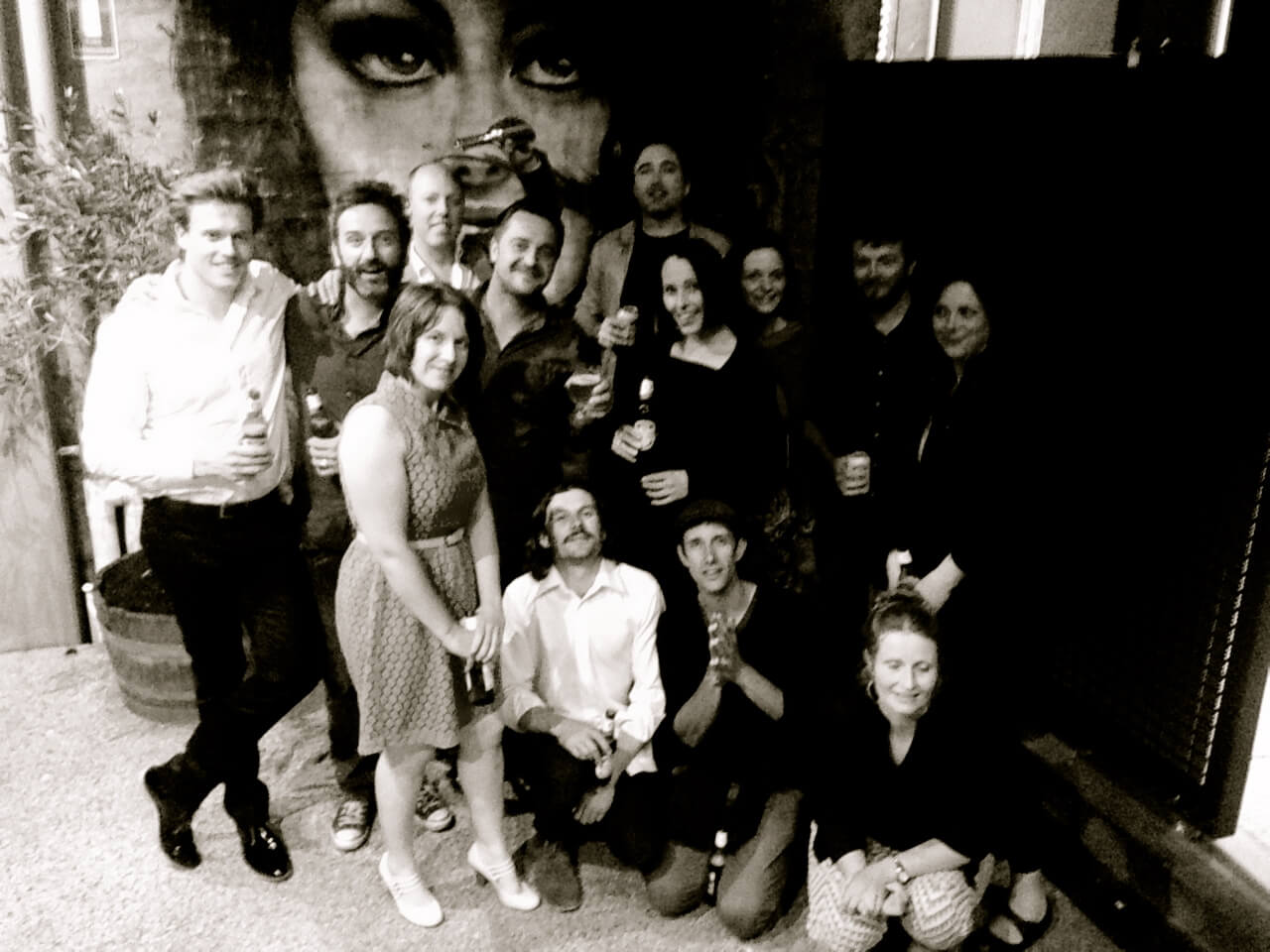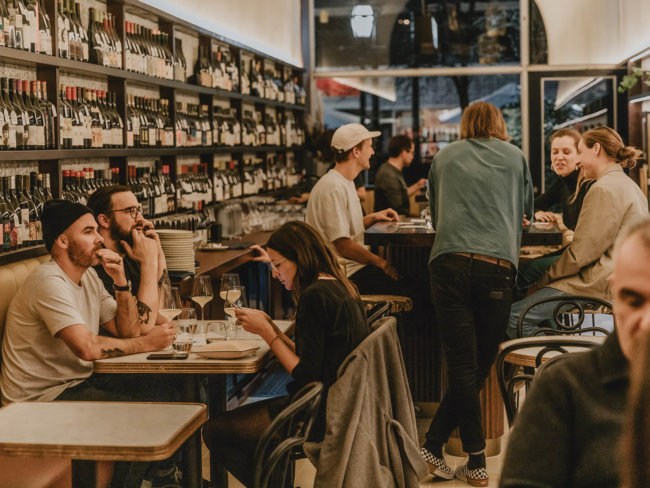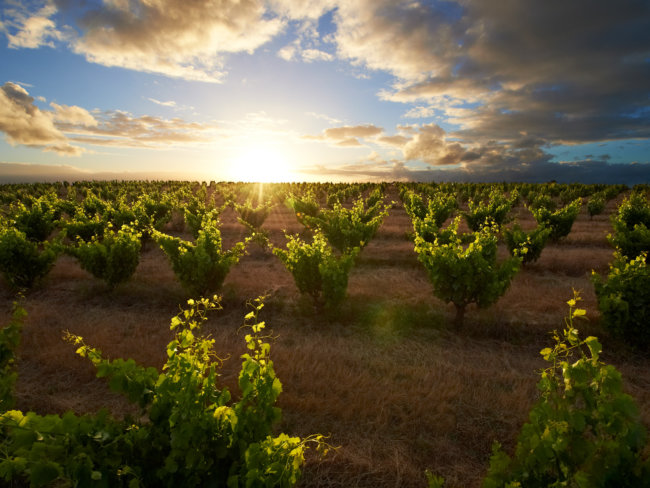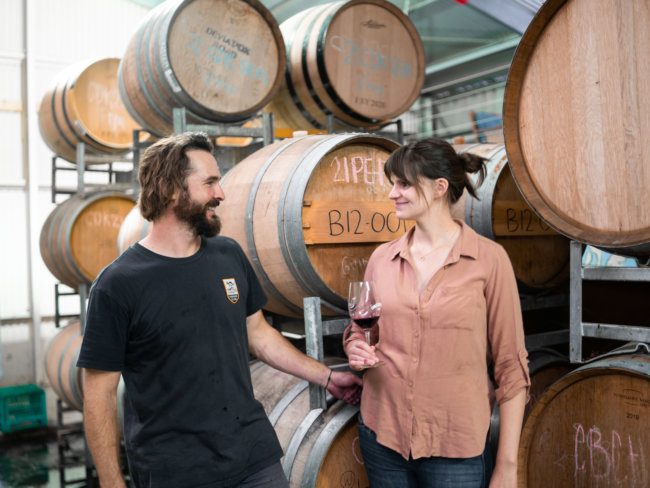Yesterday was a bad day.
On Tuesday October 13th, Taras Ochota parted with this world after a long illness, leaving behind Amber, his beloved partner in wine and life, and his adored children, Sage and Anouk.
Taras had slipped away that morning. A bleak phone call had confirmed the fact.
Disbelief was quickly evicted and a deep sorrow settled in.
Perhaps social media is a crude metric, but as the news filtered out, that thumb-flicked feed was slowly bled of colour. Social posts of springtime vine buds and trophy wines gave way to Taras’ kind, searching eyes gazing back. Those images often set in black and white. Stopped in time. First one in 20, perhaps, then one in 10, then it seemed like one – or more – in three were tributes.
Such was the collective sadness. Such was his impact on so many.
Truth is, photos of Taras often look black and white anyway. His wild man’s greying hair and beard go a long way to giving that impression, with a timeless rock n’ roll sensibility more fitting to NME or Rolling Stone – from the 60s, 70s, 80s, 90s… – than any wine magazine.
Those portraits now carry the all-too-familiar pathos of a star taken too early. A dramatic punctuation point. A mark in time, with the heavy grief of a lost future shored up by the extraordinary gifts of a life lived to powerful extremes.
The oft used rockstar epithet is an easy fit for Taras. It’s a good one. But it’s also a misleading one.
On a literal level, wine tussled with an early career playing bass in punk bands – and with decent success – with wine eventually coming out on top. But more deeply, more figuratively, Taras wears the tag because he shook things up, changing his world – and ours – in a meaningful way.
And that didn’t happen alone, after a chance meeting over a beer at the Austral Hotel in 1998, Amber and Taras became inextricably entwined.
After first bonding over an appreciation for Kombi vans, Taras and Amber crammed their young love into one, making wine and catching waves up and down the US West Coast. That was around 2000, with the first sketches of Ochota Barrels scratched out over margaritas in Mexico.
Three years based in Sweden – making wine across Europe – saw that idea grow, with the iconic Ochota brand mark inked one late night over too much Calvados amongst billowing clouds of hash. The philosophical inspiration was largely lost in that haze, but the interrupted concentric rings endured – like hardcore punk band Black Flag’s iconic logo re-informed by Eastern mysticism.
Back home, in Amber’s home territory of the Adelaide Hills, the pair tucked Ochota Barrels into every pocket of free space that day jobs would tolerate. That first wine, from 2008, was a grenache from a vineyard in Blewitt Springs, planted in 1947 by the man who still cares for it. That wine would eventually be named after post-hardcore band Fugazi – the first musical tribute of many across today’s Ochota Barrels wines.
Working with hopelessly unfashionable varieties like grenache (it was at the time) and gewürztraminer, as well as convincing growers to pick red grapes ultra-early by tricking them into thinking he was making rosé, Taras brought the fruit to bottle in idiosyncratic ways for the times, with extended skin contact, a tangle of whole bunch, and varieties that shouldn’t be blended together blended together.
More and more, Taras broke with what he had been taught, pursuing the elegant poised wines he had loved in the Old World, underscored by Amber’s no-compromise organic approach and a philosophy cemented while making wine and surfing – in near-equal measure it seems – with Seth Kunin in Santa Maria, California. That philosophy was very much about perspective, about cutting out the ego.
It’s something he did with ease. There was never any pretence to Taras’ lack of pretence.
From the outside, it’s easy to see Taras and Ochota Barrels as a bundle of noise and anarchic energy. A comet-like event that scorched through a wine world all too comfortable with itself, torching expectations along the way. But that’s too brash. All too awkward a fit for his gentle, considered brilliance. And all too unlike his gentle, caring spirit.
Taras may have rattled expectations, but he never tried to break anything along the way. His was not a quest for dominance, to assert one thing over the other. He simply had a voice, and it was a singular one, raw, with a haunting tone that cannot be taught. The kind of voice that comes to define a generation.
He was a rockstar, but with all the substance and none of the swagger.
He strung together riffs where others saw discord, and he serried surprising motifs into ragged anthems. Taras didn’t remake. He didn’t reconstruct. He pared back. He let lone notes resonate, filling the quiet spaces, revealing what others missed.
He illuminated a hidden beauty, teasing out delicacy where others saw rugged terrain – like wildflowers sprung from the cracked earth after drought-breaking rain.
We lost one of our Young Gun of Wine Awards family yesterday. A giant of modern wine. And we lost a kind, gentle soul. One who was loved by many and who loved many back. He will be missed in a gut-wrenching, lingering way. But, in time, the memories will become more precious than sad, and what he gave will not be forgotten, his spirit, and his craft. And we will be ever the richer for it.
Rest in peace dear friend.
![]()






